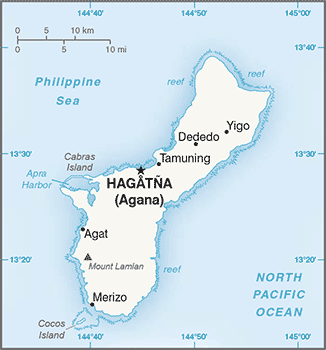
A foolish and small-scale immigration policy, sought by the island governments of Guam and the Northern Marianas, and sensibly reversed by the Trump administration, has now produced a hunger strike from some of its beneficiaries — Russian asylum seekers who cannot travel further into the U.S.
It is a reminder that the migration policies for this country's territories sometimes are different from — and always worse than — those of the Mainland.
Back in 2015, the Obama administration, pressured by the tourist-hungry Guam government, made it possible for Russian tourists to be paroled into Guam (as well as to the nearby Mariana Islands) for 45 days without visas. The Trump administration cancelled the policy in 2019, but by then some Russians admitted as tourists had became asylum applicants and have long overstayed the 45-day limit. Their entry permits only allowed them to enter Guam (and the Marianas) and not proceed further into the U.S.
Some 150 of them now want to the U.S. to change the rules, and allow them to move from Guam to Hawaii and beyond, but they cannot board the Guam to Hawaii flights (as I have done in years gone by) because their papers do not allow it. When one arrives in Honolulu on such flights one is treated as if the passenger was arriving from a foreign country.
The Russians are, though the local press does not report it in these terms, in illegal status; they want their asylum claims to be honored, and they want to move to the States. Being denied both sets of benefits, they are now threatening to start a hunger strike on March 1, according to this story in the Guam Post.
There were no explanations regarding the timing of the hunger strike. If you are going to take that route, why not do it immediately?
Island governments, routinely over the years, have sought special immigration rules. The Virgin Islands, for example, until the Nixon administration, had a particularly unattractive foreign worker program; the Marianas were excused from the nation's immigration laws, and garment sweatshops flourished, until the Bush II administration. American Samoa, till this day, has its own immigration policies, which heavily favor the local elites over Western Samoans.
